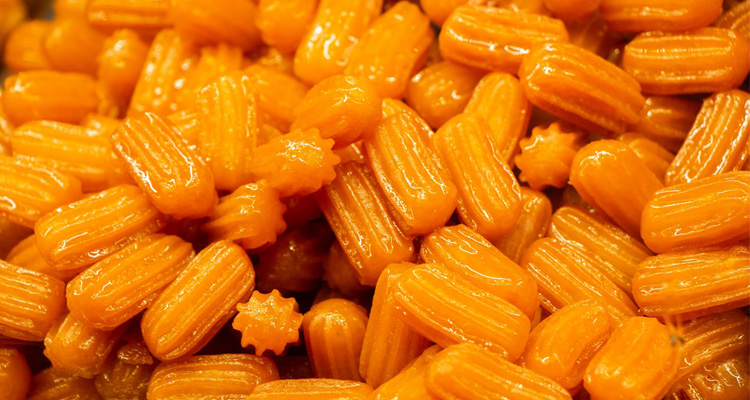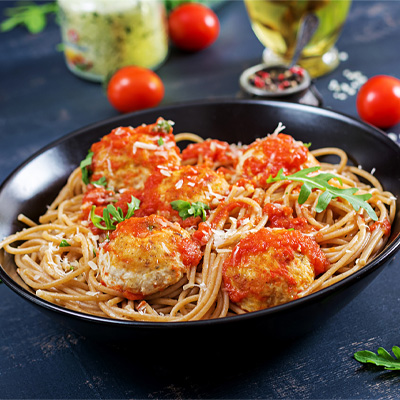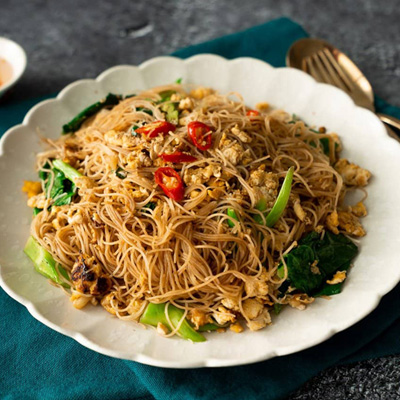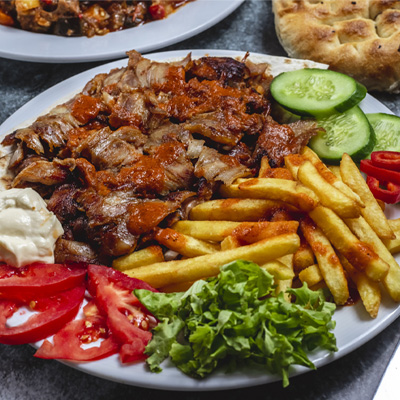In the realm of desserts, few treats hold the mystique and allure of Tulumba. Originating from the Middle East and beloved across various cultures, Tulumba is a sweet delight that transcends boundaries. In this comprehensive guide, we will embark on a flavorful journey, exploring the rich history, intricate preparation, and the cultural significance of Tulumba. Get ready to tantalize your taste buds and delve into the sugary world of this exquisite dessert.
Nutrition Facts
- Kcal
320 - Fat
18 g - Choles
140 mg - Sodium
50 mg - Carbs
35 g - Fiber
1 g - Sugar
20 g - Protein
7 g
Note: The nutrition facts are approximate values and may vary based on the specific ingredients used and any additional toppings or syrups added.
Ingredients
- 1 cup water
- 1/2 cup unsalted butter
- 1 cup all-purpose flour
- 4 large eggs
- Oil, for frying
For the Syrup
- 1 cup sugar
- 1/2 cup water
- 1 teaspoon lemon juice
- 1 teaspoon rose or orange blossom water (optional)
Directions
- Prepare the Syrup: In a saucepan, combine sugar, water, and lemon juice. Bring to a boil, then reduce the heat and simmer for 10 minutes, or until the syrup slightly thickens. Remove from heat, add rose or orange blossom water if using, and let it cool.
- Prepare the Dough: In a separate saucepan, bring water and butter to a boil. Remove from heat and add the flour. Stir vigorously until the mixture forms a smooth ball.
- Add Eggs: Let the mixture cool slightly, then add the eggs one at a time, mixing well after each addition. The dough should be smooth and shiny.
- Fry the Tulumba: Heat oil in a deep pan. Transfer the dough to a pastry bag fitted with a star tip. Pipe strips of dough directly into the hot oil, using scissors to cut the ends. Fry until golden brown, turning once. Drain on paper towels.
- Soak in Syrup: Dip the fried tulumba into the cooled syrup for a few seconds, making sure they are well-soaked. Remove and place on a serving plate.
- Serve: Tulumba is best served cold. Allow it to rest for a few hours for the syrup to soak in completely. Garnish with chopped pistachios or almonds if desired.
The Origins of Tulumba: A Historical Odyssey
Explore the ancient roots of Tulumba, tracing its origins back to the Ottoman Empire. Uncover the cultural exchanges and influences that shaped this delectable dessert into what it is today.
Ingredients Unveiled: The Building Blocks of Tulumba
Delve into the essential components that create the magic of Tulumba. From flour and sugar to the subtle hints of rose water, understand the role each ingredient plays in crafting this sweet masterpiece.
Tulumba Making Decoded: A Step-by-Step Guide
Walk through the intricate process of making Tulumba from scratch. Learn the techniques of preparing the batter, piping the perfect shapes, and achieving the ideal golden crispiness.
Regional Variations: Tulumba Around the World
Discover how different cultures have embraced Tulumba and added their unique twists. From Greece to Lebanon, explore regional variations that reflect the diverse palates of people worldwide.
Tulumba and Festivities: A Sweet Symbolism
Unravel the significance of Tulumba in various celebrations and festivities. From weddings to religious holidays, understand why this dessert holds a special place in the hearts of many.
Tips and Tricks: Mastering the Art of Tulumba
Gain insights from expert bakers on perfecting your Tulumba. From troubleshooting common issues to innovative presentations, learn how to elevate your Tulumba-making skills.
FAQs
Can I freeze Tulumba for later consumption?
A: Yes, Tulumba can be frozen. Place them in an airtight container, separating layers with parchment paper, for up to two months. Reheat in the oven for a crispy texture.
Is Tulumba gluten-free?
A: Traditional Tulumba contains flour and is not gluten-free. However, there are gluten-free variations available that use alternative flours.
What is the best way to store leftover Tulumba?
A: Store Tulumba in a cool, dry place in an airtight container. Consume within a few days for the best taste and texture.
Can I make Tulumba without rose water?
A: Yes, you can substitute rose water with orange blossom water or vanilla extract for a different flavor profile.
Is Tulumba vegan?
A: Tulumba batter typically contains eggs and dairy. However, there are vegan recipes available that use plant-based alternatives.
Why are Tulumba shapes important?
A: Tulumba's shapes influence its texture and how it absorbs the sweet syrup. Proper shaping ensures an ideal balance between crispiness and syrup absorption.
Conclusion
As we conclude our sweet expedition into the world of Tulumba, we hope you've gained not just knowledge but a deep appreciation for this sugary marvel. Whether you're a budding baker or a dessert enthusiast, experimenting with Tulumba can be a delightful culinary adventure. Embrace the sweet alchemy and create your own moments of joy with this delectable treat.













